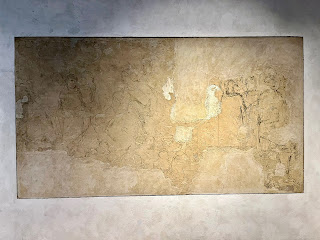
Suppose Alex and Bob are two friends. Alex is informed that Bob's girlfriend, Christine, would really like a copy of Callan's book (see previous post). Christine's birthday arrives, Bob buys her the last Harry Potter, it is the wrong present and they have an argument. The following day Bob and Alex meet. Having been informed about the quarrel, Alex tells Bob that he should have bought Callan's book instead. Bob complaints: "why didn't you tell me before?". Alex replies: "because you didn't ask me". So Bob concludes, counterfactually: "Had I know the answer (that I should have bought Callan's book), I would have asked you the question". To which Alex objects: "No you wouldn't, there would have been no need, since you would have had the right information already".
Lesson: counterfactuals are fine when talking about some features of the world (had I had more money I would have bought a better car), but do not work so well with questions and answers (had I known the answer... I would still not have asked the question, though for a different reason), unless one goes "meta" (it is the information about the presence of new information that counts).
So, how can relevant information - understood as information for which one would ask a question, were one to know (not the answer but...?) - be defined, counterfactually?








Comments
Post a Comment